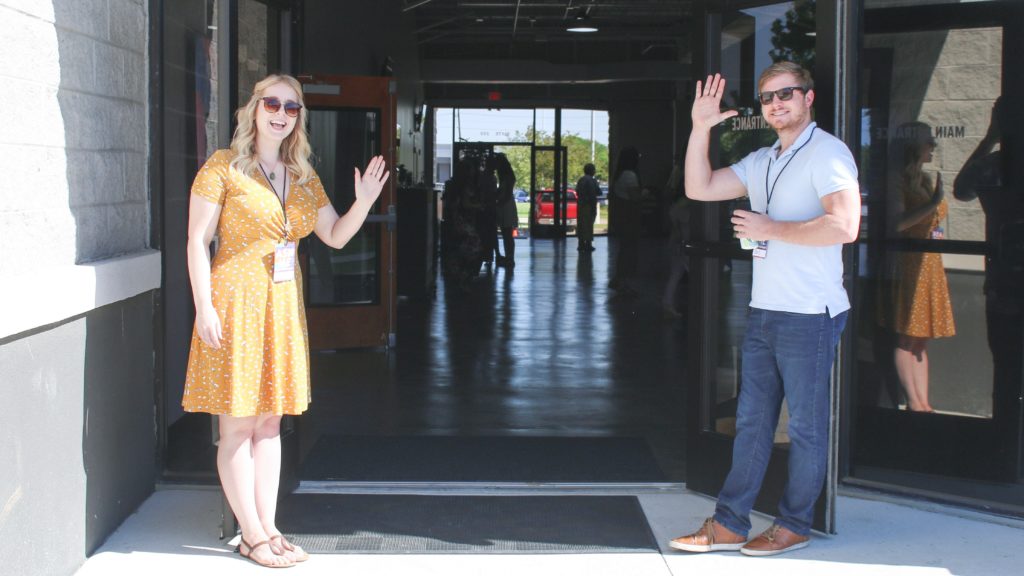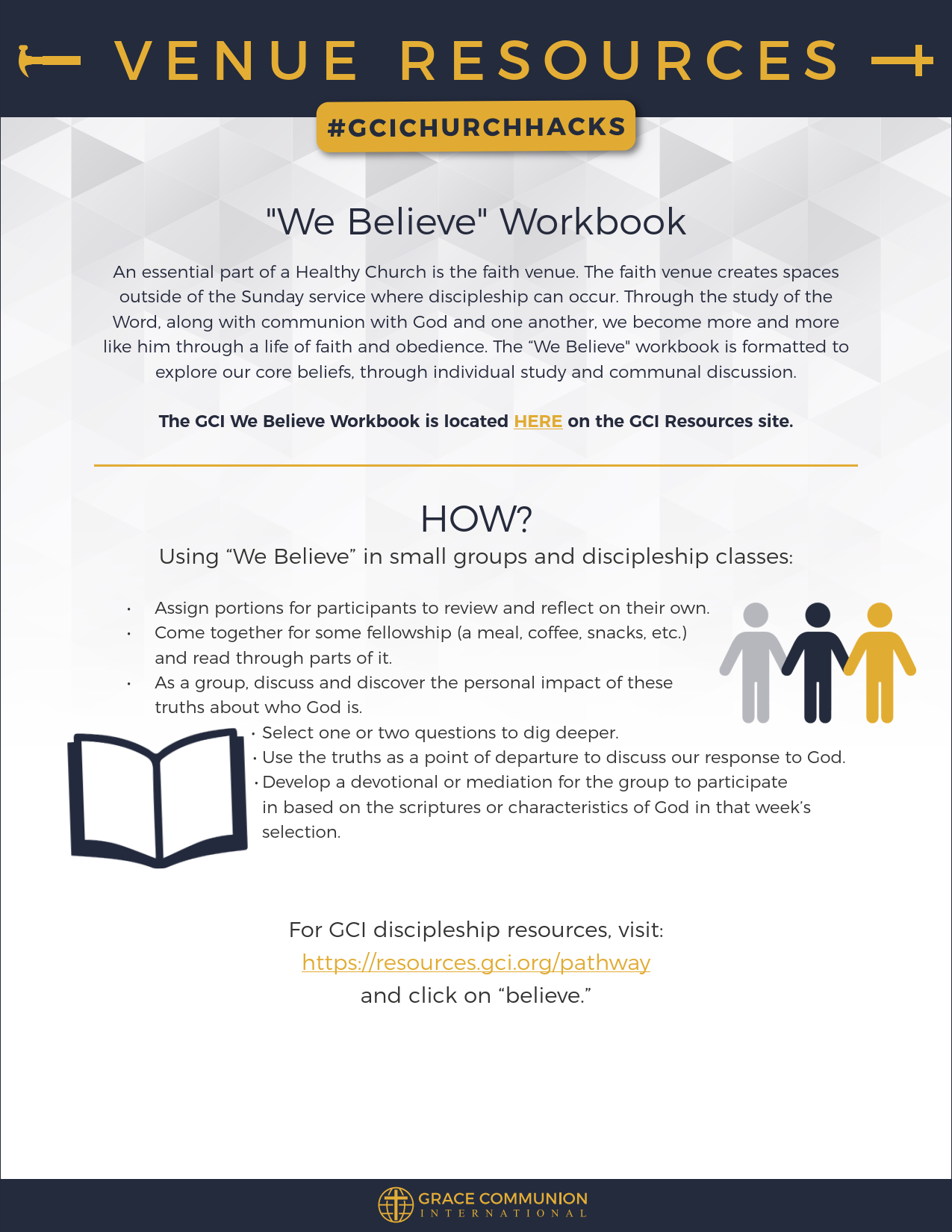Sermon for August 4, 2019
Readings: Hosea 11:1-11 • Psalm 107:1-9, 43 • Colossians 3:1-11 • Luke 12:13-21
This week’s theme is We belong to God. The prophet Hosea reminds Israel that God was always with them—even when they are in captivity or exile. They are his people and he will return them to their homes. Paul reminds believers in Colossae of their true identity. They are in Christ, therefore live in that life—putting off anything that is not Christlike. This is part of the renewal offered to all, regardless of their background. In Luke, Jesus tells the parable of the rich man who thought his identity was in what he had, rather than in God, who is our real treasure. The sermon focuses on Psalm 107, and reminds us that God hears our cries. We are his redeemed and his love for us is steadfast.
Steadfast Love
Introduction: Have Psalm 107 read prior to giving the message.
O give thanks to the Lord, for he is good; for his steadfast love endures forever. Let the redeemed of the Lord say so, those he redeemed from trouble and gathered in from the lands, from the east and from the west, from the north and from the south. (Psalm 107:1-3 NRSV)
When things are going well, it’s easy to sing songs of worship and praise. “Lord, I Lift Your Name on High,” “Everlasting God,” I Could Sing of Your Love Forever,” and many others. These are the times when worship overflows easily and effortlessly from a heart full of gratitude and praise. This happens when we are aware of God’s rescue and redemption. These are the times it is easy to say his steadfast loves endures forever.
But what about the other times—times when we feel we have nothing left to offer? Times when we believe we are on our last rope? Times when we are in the midst of a storm and don’t see a way out?
Bart Millard, who is best known for writing the song “I Can Only Imagine” after his dad died, wrote another song that describes this time of feeling we have nothing left to offer. The song, “Even If” was written on a day when Bart had hit bottom. He and his wife have a son with Diabetes 2 and though there are a number of good days, Bart said, “there are bad days, very bad days, and very, very bad days.” After a “very, very bad day,” the last thing Bart wanted to do was go to work and sing worship songs to others. It was during one of these times that he wrote the song “Even If.”
Here’s what he said about the song:
“Even If” is a reminder to people in difficult situations that don’t seem to go away. God is worthy long before any of those circumstances even showed up. This song is a declaration to God that even if He went silent and never said another word, He’s still worthy to be praised and that He’s our greatest hope in the midst of the trial. (Bart Millard, MercyMe)
Suggestion: You may want to play “Even If” with the lyrics. Another good song you may want to play with lyrics is Casting Crown’s “Praise you in this storm.” This would be good to play near the end of the message.
All of us face times when God seems far away, and we feel we have nothing left to offer. We are done. It’s too much. We are tired, or thirsty, or imprisoned—often in a cell of our own making. We can be bound in our own chains through our own choices or caught in the waves of a stormy and turbulent sea.

Even in these times God is faithful in his steadfast love. Sometimes it is difficult to see initially, but when we look back, we can see he was there. Often it is in the dark moments—when we feel the most alone or the most abandoned—that we see his love shine brighter and push through more powerfully to us than ever.
When I cry out, “Where are you, Lord?” I’m reminded of Psalm 107.
Let’s read the first few verses again:
O give thanks to the Lord, for he is good; for his steadfast love endures forever. Let the redeemed of the Lord say so, those he redeemed from trouble and gathered in from the lands, from the east and from the west, from the north and from the south. (Psalm 107:1-3 NRSV)
This beautiful Psalm depicts people going through the ups and downs of life—times of exaltation and times of hardship. These are hardships not necessarily brought on by us, but simply rough seasons of life and happenstance.
After calling up a gathering of people from all over the place—north, south, east and west (the four corners of the earth)—the Psalmist encourages all to speak out in praise of God who has redeemed them.
Four times in this psalm he refers to those who have cried out in their trouble or distress, and the Lord delivers them.
The four distresses include:
- Those who are wandering in the desert (verses 4-9).
- Those who are imprisoned or in bondage (verses 10-16).
- Those who are suffering from sickness and disease (verses 17-22).
- Those who are in a storm at sea (verses 23-30).
Let’s take a brief look at each of these distresses:
Wandering in the desert
Some wandered in desert wastes, finding no way to an inhabited town; hungry and thirsty, their soul fainted within them. Then they cried to the Lord in their trouble, and he delivered them from their distress; he led them by a straight way, until they reached an inhabited town. Let them thank the Lord for his steadfast love, for his wonderful works to humankind. For he satisfies the thirsty, and the hungry he fills with good things. (Psalm 107:4-9 NRSV)
Today, this refers to those times you feel lost and you are trying to find your way back home. A good biblical example of this is the prodigal son. There are many modern-day examples—you most likely know some wanderers. Perhaps you have been a prodigal child searching for meaning, longing for acceptance, and desiring to come home. Our current world scene is marked by the cries and pleas of hundreds of different groups, thousands of people, seeking help and homeland, refuge and asylum, but often not finding it. The world is filled with those who aren’t sure where their home is, and/or fear they might not be welcomed.
The Psalmist doesn’t point to the sins of the wanderers, just to their need. Their need inspires them to turn to a merciful God for help. The Psalmist reminds us that Jesus is our home—he welcomes us and fills the longing we sometimes feel; he satisfies when nothing else can.
Imprisoned or in bondage
Some sat in darkness and in gloom, prisoners in misery and in irons, for they had rebelled against the words of God, and spurned the counsel of the Most High. Their hearts were bowed down with hard labor; they fell down, with no one to help. Then they cried to the Lord in their trouble, and he saved them from their distress; he brought them out of darkness and gloom, and broke their bonds asunder. Let them thank the Lord for his steadfast love, for his wonderful works to humankind. For he shatters the doors of bronze, and cuts in two the bars of iron. (Psalm 107:10-16 NRSV)
In this case, the Psalmist does refer to sin that keeps us in bondage. It may also refer to spiritual captivity. Jesus said he came to bring liberty from all forms of bondage. Whether or not you have rebelled against God, those who find themselves in prison or bondage cry out to the Lord in their distress.
The phrase “behind doors of bronze and bars of iron” depicts a place of no escape. This can be literal but is primarily metaphorical. People often talk of sins they just can’t stop, habits they cannot break, things that keep them in a state of spiritual bondage. God hears our lament and says he will bring us out of the darkness and the gloom—releasing us from the shackles and cuffs we believe are keeping us in bondage. Our sins and mistakes may land us in jail, but even there, God is with us. No matter if troubles are the result of sin, choice or circumstance, God stands ready to hear and deliver. For this, we thank the Lord for his steadfast love.
Sickness and disease
Some were sick through their sinful ways, and because of their iniquities endured affliction; they loathed any kind of food, and they drew near to the gates of death. Then they cried to the Lord in their trouble, and he saved them from their distress; he sent out his word and healed them, and delivered them from destruction. Let them thank the Lord for his steadfast love, for his wonderful works to humankind. And let them offer thanksgiving sacrifices, and tell of his deeds with songs of joy. (Psalm 107:17-22 NRSV)
The application for us can apply to illnesses of the body, mind, or heart. Sickness was often thought to be a consequence of one’s sin and misdeeds, and sometimes it is. All sickness is the result of the fall of humanity. Like those afflicted in Jesus’ day, we are to bring all our afflictions to him. He is the healer and the deliverer—he heals the mind and heart as well as the body. For this, we praise God for his steadfast love with songs of joy.
Storms at sea
Some went down to the sea in ships, doing business on the mighty waters; they saw the deeds of the Lord, his wondrous works in the deep. For he commanded and raised the stormy wind, which lifted up the waves of the sea. They mounted up to heaven, they went down to the depths; their courage melted away in their calamity; they reeled and staggered like drunkards, and were at their wits’ end. Then they cried to the Lord in their trouble, and he brought them out from their distress; he made the storm be still, and the waves of the sea were hushed. Then they were glad because they had quiet, and he brought them to their desired haven. Let them thank the Lord for his steadfast love, for his wonderful works to humankind. Let them extol him in the congregation of the people, and praise him in the assembly of the elders. (Psalm 107:23-32 NRSV)
The fierce storm in this passage can remind us of the warnings given to us by the Apostle Paul: “We must no longer be children, tossed to and fro and blown about by every wind of doctrine, by people’s trickery, by their craftiness in deceitful scheming” (Ephesians 4:14). We face many different kinds of storms throughout our lives, but God controls the storms. His love will endure through any storm we face.
The group Casting Crowns wrote a song called “Praise You in the Storm.” Let me share some of the lyrics:
I was sure by now God you would have reached down
And wiped our tears away,
Stepped in and saved the day.
But once again, I say amen
That it’s still raining
As the thunder rolls
I barely hear your whisper through the rain
I’m with you
And as your mercy falls
I raise my hands and praise
The God who gives and takes away
And I’ll praise you in this storm
And I will lift my hands
That you are who you are
No matter where I am
And every tear I’ve cried
You hold in your hand
You never left my side
And though my heart is torn
I will praise you in this storm
We can praise God in the wilderness, in bondage, in sickness and in the storm because we know the One we praise – Jesus, the Son of the Father.
Let’s note how Psalm 107 ends and be encouraged by these words, which speak of Jesus and his steadfast love:
As you read this passage, insert the name of Jesus and emphasize it where you see the pronoun.
He turns rivers into a desert, springs of water into thirsty ground, a fruitful land into a salty waste, because of the wickedness of its inhabitants.
He turns a desert into pools of water, a parched land into springs of water. And there he lets the hungry live, and they establish a town to live in; they sow fields, and plant vineyards, and get a fruitful yield. By his blessing they multiply greatly, and he does not let their cattle decrease.
When they are diminished and brought low through oppression, trouble, and sorrow, he pours contempt on princes and makes them wander in trackless wastes; but he raises up the needy out of distress, and makes their families like flocks.
The upright see it and are glad; and all wickedness stops its mouth. Let those who are wise give heed to these things, and consider the steadfast love of the Lord.
Jesus restores, he redeems, he heals, he frees, he delivers. It’s because of his steadfast love.
- Share a time you experienced the steadfast love of God.
- Share a time when you questioned God’s steadfast love.
- We get the sense in Psalm 107 that God’s love is evident and available in all circumstances. How would you explain this to someone who is questioning God’s love?
- Read Colossians 3:1-11 and discuss what it means to be in Christ. How do you explain this to someone else? To someone who believes they are defined by something else?
Readings: Hosea 11:1-11 • Psalm 107:1-9, 43 • Colossians 3:1-11 • Luke 12:13-21
This week’s theme is We belong to God. The prophet Hosea reminds Israel that God was always with them—even when they are in captivity or exile. They are his people and he will return them to their homes. Paul reminds believers in Colossae of their true identity. They are in Christ, therefore live in that life—putting off anything that is not Christlike. This is part of the renewal offered to all, regardless of their background. In Luke, Jesus tells the parable of the rich man who thought his identity was in what he had, rather than in God, who is our real treasure. The sermon focuses on Psalm 107, and reminds us that God hears our cries. We are his redeemed and his love for us is steadfast.
Steadfast Love
Introduction: Have Psalm 107 read prior to giving the message.
O give thanks to the Lord, for he is good; for his steadfast love endures forever. Let the redeemed of the Lord say so, those he redeemed from trouble and gathered in from the lands, from the east and from the west, from the north and from the south. (Psalm 107:1-3 NRSV)
When things are going well, it’s easy to sing songs of worship and praise. “Lord, I Lift Your Name on High,” “Everlasting God,” I Could Sing of Your Love Forever,” and many others. These are the times when worship overflows easily and effortlessly from a heart full of gratitude and praise. This happens when we are aware of God’s rescue and redemption. These are the times it is easy to say his steadfast loves endures forever.
But what about the other times—times when we feel we have nothing left to offer? Times when we believe we are on our last rope? Times when we are in the midst of a storm and don’t see a way out?
Bart Millard, who is best known for writing the song “I Can Only Imagine” after his dad died, wrote another song that describes this time of feeling we have nothing left to offer. The song, “Even If” was written on a day when Bart had hit bottom. He and his wife have a son with Diabetes 2 and though there are a number of good days, Bart said, “there are bad days, very bad days, and very, very bad days.” After a “very, very bad day,” the last thing Bart wanted to do was go to work and sing worship songs to others. It was during one of these times that he wrote the song “Even If.”
Here’s what he said about the song:
“Even If” is a reminder to people in difficult situations that don’t seem to go away. God is worthy long before any of those circumstances even showed up. This song is a declaration to God that even if He went silent and never said another word, He’s still worthy to be praised and that He’s our greatest hope in the midst of the trial. (Bart Millard, MercyMe)
Suggestion: You may want to play “Even If” with the lyrics. Another good song you may want to play with lyrics is Casting Crown’s “Praise you in this storm.” This would be good to play near the end of the message.
All of us face times when God seems far away, and we feel we have nothing left to offer. We are done. It’s too much. We are tired, or thirsty, or imprisoned—often in a cell of our own making. We can be bound in our own chains through our own choices or caught in the waves of a stormy and turbulent sea.

Even in these times God is faithful in his steadfast love. Sometimes it is difficult to see initially, but when we look back, we can see he was there. Often it is in the dark moments—when we feel the most alone or the most abandoned—that we see his love shine brighter and push through more powerfully to us than ever.
When I cry out, “Where are you, Lord?” I’m reminded of Psalm 107.
Let’s read the first few verses again:
O give thanks to the Lord, for he is good; for his steadfast love endures forever. Let the redeemed of the Lord say so, those he redeemed from trouble and gathered in from the lands, from the east and from the west, from the north and from the south. (Psalm 107:1-3 NRSV)
This beautiful Psalm depicts people going through the ups and downs of life—times of exaltation and times of hardship. These are hardships not necessarily brought on by us, but simply rough seasons of life and happenstance.
After calling up a gathering of people from all over the place—north, south, east and west (the four corners of the earth)—the Psalmist encourages all to speak out in praise of God who has redeemed them.
Four times in this psalm he refers to those who have cried out in their trouble or distress, and the Lord delivers them.
The four distresses include:
- Those who are wandering in the desert (verses 4-9).
- Those who are imprisoned or in bondage (verses 10-16).
- Those who are suffering from sickness and disease (verses 17-22).
- Those who are in a storm at sea (verses 23-30).
Let’s take a brief look at each of these distresses:
Wandering in the desert
Some wandered in desert wastes, finding no way to an inhabited town; hungry and thirsty, their soul fainted within them. Then they cried to the Lord in their trouble, and he delivered them from their distress; he led them by a straight way, until they reached an inhabited town. Let them thank the Lord for his steadfast love, for his wonderful works to humankind. For he satisfies the thirsty, and the hungry he fills with good things. (Psalm 107:4-9 NRSV)
Today, this refers to those times you feel lost and you are trying to find your way back home. A good biblical example of this is the prodigal son. There are many modern-day examples—you most likely know some wanderers. Perhaps you have been a prodigal child searching for meaning, longing for acceptance, and desiring to come home. Our current world scene is marked by the cries and pleas of hundreds of different groups, thousands of people, seeking help and homeland, refuge and asylum, but often not finding it. The world is filled with those who aren’t sure where their home is, and/or fear they might not be welcomed.
The Psalmist doesn’t point to the sins of the wanderers, just to their need. Their need inspires them to turn to a merciful God for help. The Psalmist reminds us that Jesus is our home—he welcomes us and fills the longing we sometimes feel; he satisfies when nothing else can.
Imprisoned or in bondage
Some sat in darkness and in gloom, prisoners in misery and in irons, for they had rebelled against the words of God, and spurned the counsel of the Most High. Their hearts were bowed down with hard labor; they fell down, with no one to help. Then they cried to the Lord in their trouble, and he saved them from their distress; he brought them out of darkness and gloom, and broke their bonds asunder. Let them thank the Lord for his steadfast love, for his wonderful works to humankind. For he shatters the doors of bronze, and cuts in two the bars of iron. (Psalm 107:10-16 NRSV)
In this case, the Psalmist does refer to sin that keeps us in bondage. It may also refer to spiritual captivity. Jesus said he came to bring liberty from all forms of bondage. Whether or not you have rebelled against God, those who find themselves in prison or bondage cry out to the Lord in their distress.
The phrase “behind doors of bronze and bars of iron” depicts a place of no escape. This can be literal but is primarily metaphorical. People often talk of sins they just can’t stop, habits they cannot break, things that keep them in a state of spiritual bondage. God hears our lament and says he will bring us out of the darkness and the gloom—releasing us from the shackles and cuffs we believe are keeping us in bondage. Our sins and mistakes may land us in jail, but even there, God is with us. No matter if troubles are the result of sin, choice or circumstance, God stands ready to hear and deliver. For this, we thank the Lord for his steadfast love.
Sickness and disease
Some were sick through their sinful ways, and because of their iniquities endured affliction; they loathed any kind of food, and they drew near to the gates of death. Then they cried to the Lord in their trouble, and he saved them from their distress; he sent out his word and healed them, and delivered them from destruction. Let them thank the Lord for his steadfast love, for his wonderful works to humankind. And let them offer thanksgiving sacrifices, and tell of his deeds with songs of joy. (Psalm 107:17-22 NRSV)
The application for us can apply to illnesses of the body, mind, or heart. Sickness was often thought to be a consequence of one’s sin and misdeeds, and sometimes it is. All sickness is the result of the fall of humanity. Like those afflicted in Jesus’ day, we are to bring all our afflictions to him. He is the healer and the deliverer—he heals the mind and heart as well as the body. For this, we praise God for his steadfast love with songs of joy.
Storms at sea
Some went down to the sea in ships, doing business on the mighty waters; they saw the deeds of the Lord, his wondrous works in the deep. For he commanded and raised the stormy wind, which lifted up the waves of the sea. They mounted up to heaven, they went down to the depths; their courage melted away in their calamity; they reeled and staggered like drunkards, and were at their wits’ end. Then they cried to the Lord in their trouble, and he brought them out from their distress; he made the storm be still, and the waves of the sea were hushed. Then they were glad because they had quiet, and he brought them to their desired haven. Let them thank the Lord for his steadfast love, for his wonderful works to humankind. Let them extol him in the congregation of the people, and praise him in the assembly of the elders. (Psalm 107:23-32 NRSV)
The fierce storm in this passage can remind us of the warnings given to us by the Apostle Paul: “We must no longer be children, tossed to and fro and blown about by every wind of doctrine, by people’s trickery, by their craftiness in deceitful scheming” (Ephesians 4:14). We face many different kinds of storms throughout our lives, but God controls the storms. His love will endure through any storm we face.
The group Casting Crowns wrote a song called “Praise You in the Storm.” Let me share some of the lyrics:
I was sure by now God you would have reached down
And wiped our tears away,
Stepped in and saved the day.
But once again, I say amen
That it’s still raining
As the thunder rolls
I barely hear your whisper through the rain
I’m with you
And as your mercy falls
I raise my hands and praise
The God who gives and takes away
And I’ll praise you in this storm
And I will lift my hands
That you are who you are
No matter where I am
And every tear I’ve cried
You hold in your hand
You never left my side
And though my heart is torn
I will praise you in this storm
We can praise God in the wilderness, in bondage, in sickness and in the storm because we know the One we praise – Jesus, the Son of the Father.
Let’s note how Psalm 107 ends and be encouraged by these words, which speak of Jesus and his steadfast love:
As you read this passage, insert the name of Jesus and emphasize it where you see the pronoun.
He turns rivers into a desert, springs of water into thirsty ground, a fruitful land into a salty waste, because of the wickedness of its inhabitants.
He turns a desert into pools of water, a parched land into springs of water. And there he lets the hungry live, and they establish a town to live in; they sow fields, and plant vineyards, and get a fruitful yield. By his blessing they multiply greatly, and he does not let their cattle decrease.
When they are diminished and brought low through oppression, trouble, and sorrow, he pours contempt on princes and makes them wander in trackless wastes; but he raises up the needy out of distress, and makes their families like flocks.
The upright see it and are glad; and all wickedness stops its mouth. Let those who are wise give heed to these things, and consider the steadfast love of the Lord.
Jesus restores, he redeems, he heals, he frees, he delivers. It’s because of his steadfast love.
- Share a time you experienced the steadfast love of God.
- Share a time when you questioned God’s steadfast love.
- We get the sense in Psalm 107 that God’s love is evident and available in all circumstances. How would you explain this to someone who is questioning God’s love?
- Read Colossians 3:1-11 and discuss what it means to be in Christ. How do you explain this to someone else? To someone who believes they are defined by something else?









